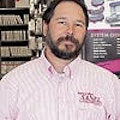If your idea of the parts business is a strictly technical one, then you are probably of the opinion that anyone with technical knowledge can do it. If you think it's more of a salesman's job, then you might think that all you need are good sales skills. If you think it's a little bit of both and then some, then you either are a parts specialist or have had good dealings with one. No matter what your opinion might be, parts professionals, like qualified technicians, are made, not born.
While the need for qualified counter help might not be as acute as the technician shortage, it certainly exists. The good news is that given the right raw material, you can produce a competent parts specialist in a shorter period of time than you can a journeyman technician. The bad news is that they can be a lot harder to hang on to. Technicians are, in effect, their own commodity. They sell their services and, in a good market working flat rate, can do very well. A parts specialist, however, is a link between the commodity and the end user. And though it's a vital link, we are still at the mercy of market trends and whims.
So once you have found your counter specialist raw material and brought them on board, you have to keep them interested and productive. Most people's first inclination is to consider the monetary rewards. While it's a large part of the equation, it's not really the whole answer. If your new hire has no experience, then the first few years are a continuing learning experience that can keep complacency at bay. That will last only for so long, however. It's natural that as an employee gains job experience, he or she will want to take on more responsibilities and reap higher rewards. That's all well and good if the realities match the expectations for all concerned.
Large companies with multiple locations have an advantage in being able to accommodate motivated employees, but the operator with only one or a few stores may find their employees feel like they're running into a wall.
Continuing training and a constant search for new product lines and customers are the easiest and most productive ways to keep employee interest up and make things more rewarding for all concerned. But at some point even the best help can turn bad. What an employee thinks are good times and the actual facts don't always agree. Fixed costs and unseen or unused employee benefits easily can add 40 cents or more to every dollar that an employee makes. Couple that with store operating and inventory costs, and the price for just putting the key in the door every morning can be substantial. And that's not always an easy fact to communicate, especially to someone who thinks management is shortchanging him or her.
They say that if you stand in one place long enough everyone in the world will pass your way once. If you stay at the same parts counter long enough, you're certain to see a parade of employees come your way, too — some you'll be glad to see and others you'll be glad to see go. The unfortunate part about training someone to be a parts specialist, especially one with no previous automotive experience, is that the same analytical and customer service skills that are needed to be effective are in demand in lots of other service sector jobs as well. The competition among jobbers for sales can be tough enough, but competing for employees, especially those you train, can be even worse.
Mike Gordon, a 20-year counter sales veteran, works the counter at Sanel Auto Parts, Concord, N.H.
About the Author
